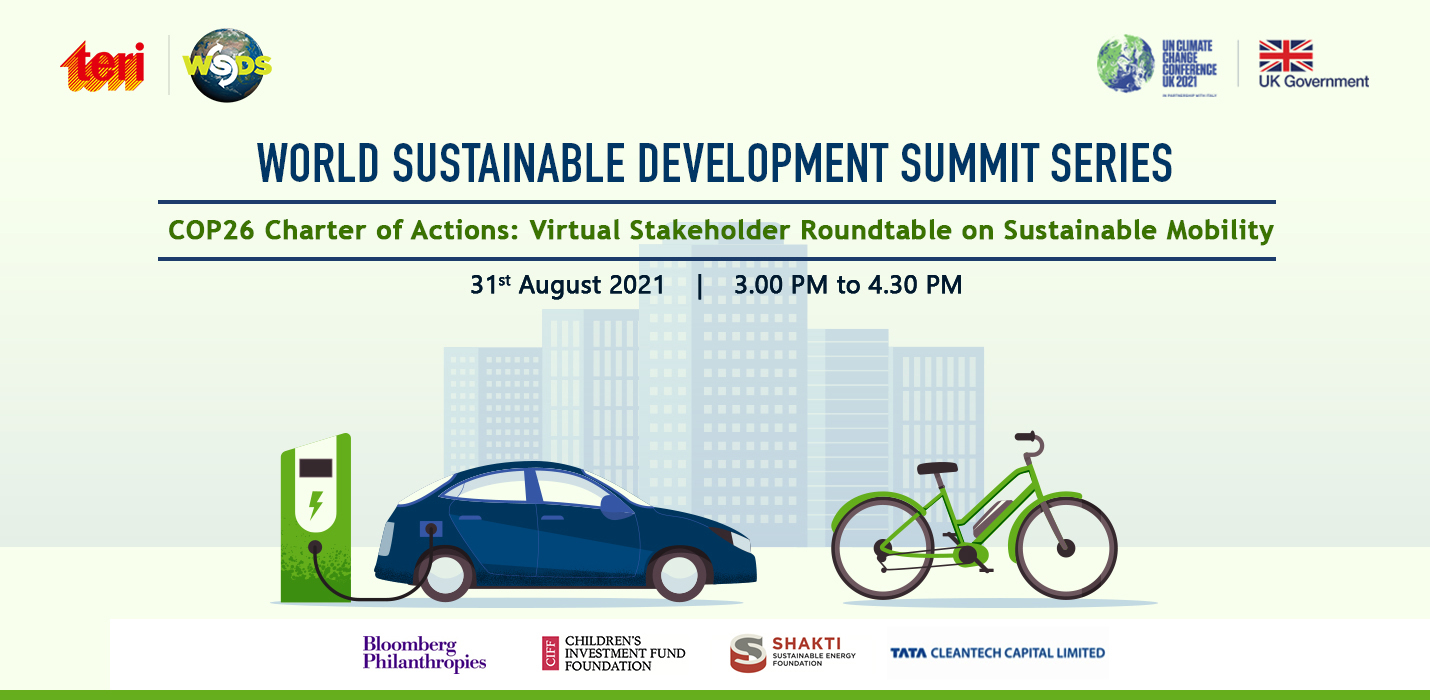
Driven by increasing economic growth and population expansion, transport activity in India has grown more than 7-fold since 1992. Going forward, passenger and freight activity is estimated to grow by three-fold and seven-fold, respectively by 2050. Without significant policy interventions, this would translate into transport emissions increasing faster than most other sectors. Thus, transport decarbonization is an important cog in India’s ambitious climate change commitments and achieving net-zero emissions by mid-century. India’s NDC clearly lays down the focus areas to reduce emissions from the transport sector. Though NDCs provide a good guide, it is necessary to formulate policies that focus on the targeted areas of decarbonisation in the transport sector. India has taken pioneering efforts in promoting electric mobility through Central and State level initiatives.
The 26th UN Climate Change Conference of the Parties (COP26), to be held from 1–12 November 2021 in Glasgow will aim to mobilize the action on mitigation, adaptation, and resilience, and strengthen the narrative for better alignment with sustainable development goals. TERI is preparing a COP26 Charter of Actions which will assimilate questions and challenges posed by keys sectors in India. The Charter will also propose probable and sector specific options which can advance climate action and ambition in the country.
With the above background, a stakeholder roundtable will be organized with the following objectives.
The Energy & Resources Institute
6C, Darbari Seth Block, India Habitat Centre, Lodhi Road
New Delhi - 110 003 India
Email : wsds@teri.res.in
Ph. : +91 11 24682100 (Ext. : 2467)